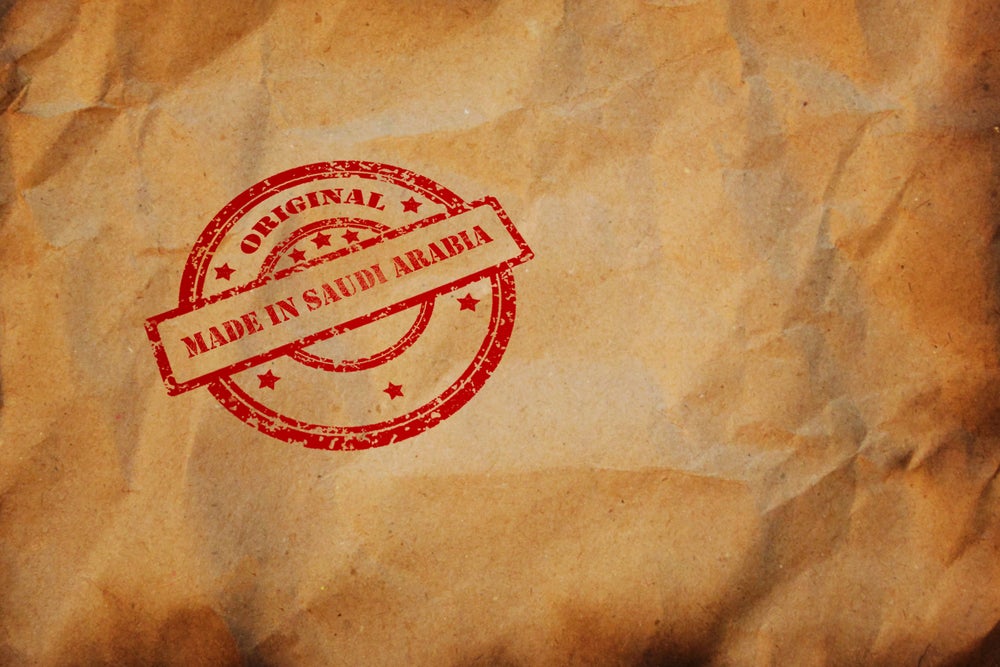In the dynamic world of packaging, Saudi Arabia has experienced a remarkable journey of economic growth and urbanisation since the discovery of oil nearly nine decades ago.
However, the dominant linear economic model in the Kingdom, marked by raw material extraction, short product lifecycles, and waste generation, is undergoing a profound shift.
In the packaging sector, this transformation is pivotal. The call is for a transition to a circular economy – a transformative approach that emphasises waste reduction, resource optimisation, and sustainability.
In this feature story, we delve into how the packaging industry in Saudi Arabia can lead the charge in embracing the circular economy and address critical challenges on its path.
The transition to a circular economy: a packaging perspective
In recent years, there has been a growing realisation in the packaging sector that Saudi Arabia must pivot towards a circular economic model.
Unlike the traditional linear model, a circular economy places paramount importance on designing packaging solutions with minimal waste in mind. It champions the responsible use of resources and calls for the rethinking of how products and materials move through the supply chain.
The circular economy is not merely a choice but a necessity for the packaging industry to meet the evolving needs of both consumers and the environment.
- Redesigning packaging for sustainability
At the heart of the circular economy lies the concept of designing packaging solutions that generate minimal waste. For the packaging sector in Saudi Arabia, this entails a shift from single-use, disposable packaging to designs that prioritise durability, reusability, and recyclability.
Packaging companies can make a difference by creating products that are not only functional but also built to endure, be repaired, and potentially upgraded to extend their lifecycle.
- Embracing the three R's – reduce, reuse, and recycle
The "reduce, reuse, and recycle" mantra is a guiding principle in the circular economy, and it holds immense significance for the packaging industry.
The circular economy encourages packaging producers and consumers to reduce waste through smart design choices, promote the reuse of packaging materials, and support efficient recycling practices.
Recycling company Sparklo recently achieved a major milestone in Middle East and North Africa (MENA) with the installation of an artificial intelligence (AI)-powered recycling solution, Sparklomat in Saudi Arabia.
In a country like Saudi Arabia, which faces resource constraints, this approach aligns with economic and environmental goals.
The urgent imperatives for the packaging sector
The adoption of the circular economy by the packaging sector in Saudi Arabia is not just about environmental responsibility; it is a response to pressing challenges that span both environmental and economic realms.
- Environmental challenges
The packaging industry, integral to global trade and consumer life, plays a significant role in environmental concerns. Saudi Arabia faces challenges such as pollution, climate change, and resource scarcity.
Many of its cities are among the most polluted in the world, and the nation's contribution to climate change is considerable. The need for responsible packaging practices has never been more evident.
A circular economy approach helps mitigate these environmental challenges, enabling the packaging sector to take the lead in sustainable practices.
- Economic opportunities
Economic diversification is an essential priority for Saudi Arabia, a country historically dependent on oil. The circular economy offers remarkable opportunities for the packaging sector to lead the way in creating innovative, job-intensive industries.
Transitioning to a circular packaging model can open doors to new sectors and job opportunities, ultimately ensuring the economic stability and growth of the nation.
While Saudi Arabia has not yet formalised legislation or a national strategy for the circular economy, several environmental and sustainability policies, including Vision 2030 and the National Environment Strategy, lay the foundation for this transition.
These policies underscore the importance of sustainable development and the need for the packaging industry to play a pivotal role.
Key areas of focus for accelerated transition
To expedite the shift towards a circular packaging economy, Saudi Arabia must prioritise key areas where rapid progress is feasible.
In this regard, we examine the interlinked issues of municipal waste, food waste, and municipal recycling, all of which are significant challenges for the packaging sector.
- Reforming municipal waste management
The packaging industry has a central role in the management of municipal waste. In Saudi Arabia, a substantial portion of waste ends up in landfills, perpetuating the linear economy.
The packaging sector can contribute by reducing packaging waste generation and supporting advanced waste sorting and recycling facilities.
- Tackling food packaging waste
Food packaging waste is a substantial challenge within the packaging sector. Saudi Arabia ranks as the biggest waster of food in the Gulf Cooperation Council on a per capita basis, and packaging is a significant part of this issue.
A circular economy approach urges the packaging industry to reduce food packaging waste through better designs, storage, and distribution practices.
- Enhancing municipal packaging recycling
Municipal recycling rates in Saudi Arabia are dismally low, with less than 10% of recyclable materials being processed.
The packaging sector has a vital role to play in supporting efficient recycling systems for packaging materials. By participating in collection, processing, and recycling, the industry can make a substantial impact.









